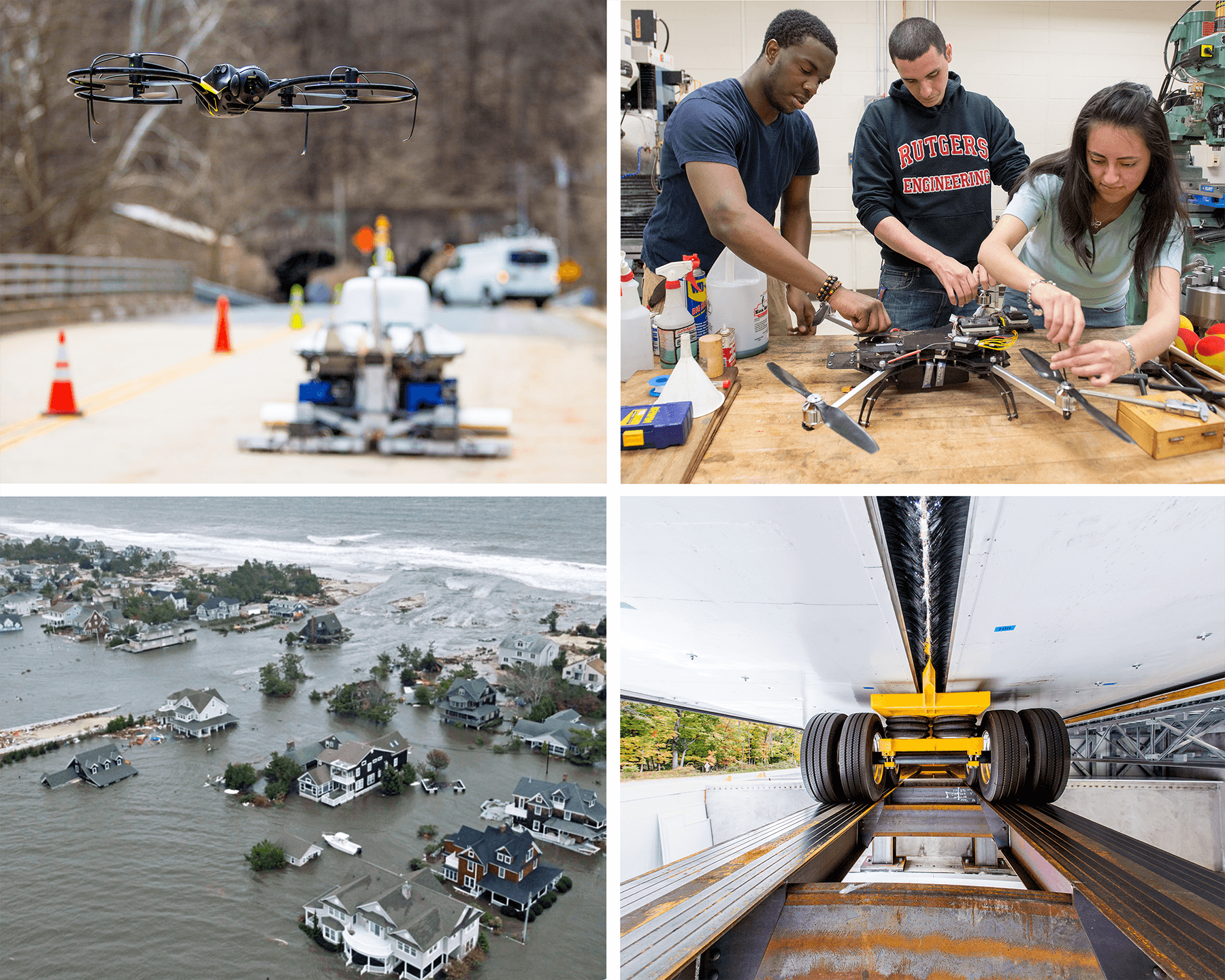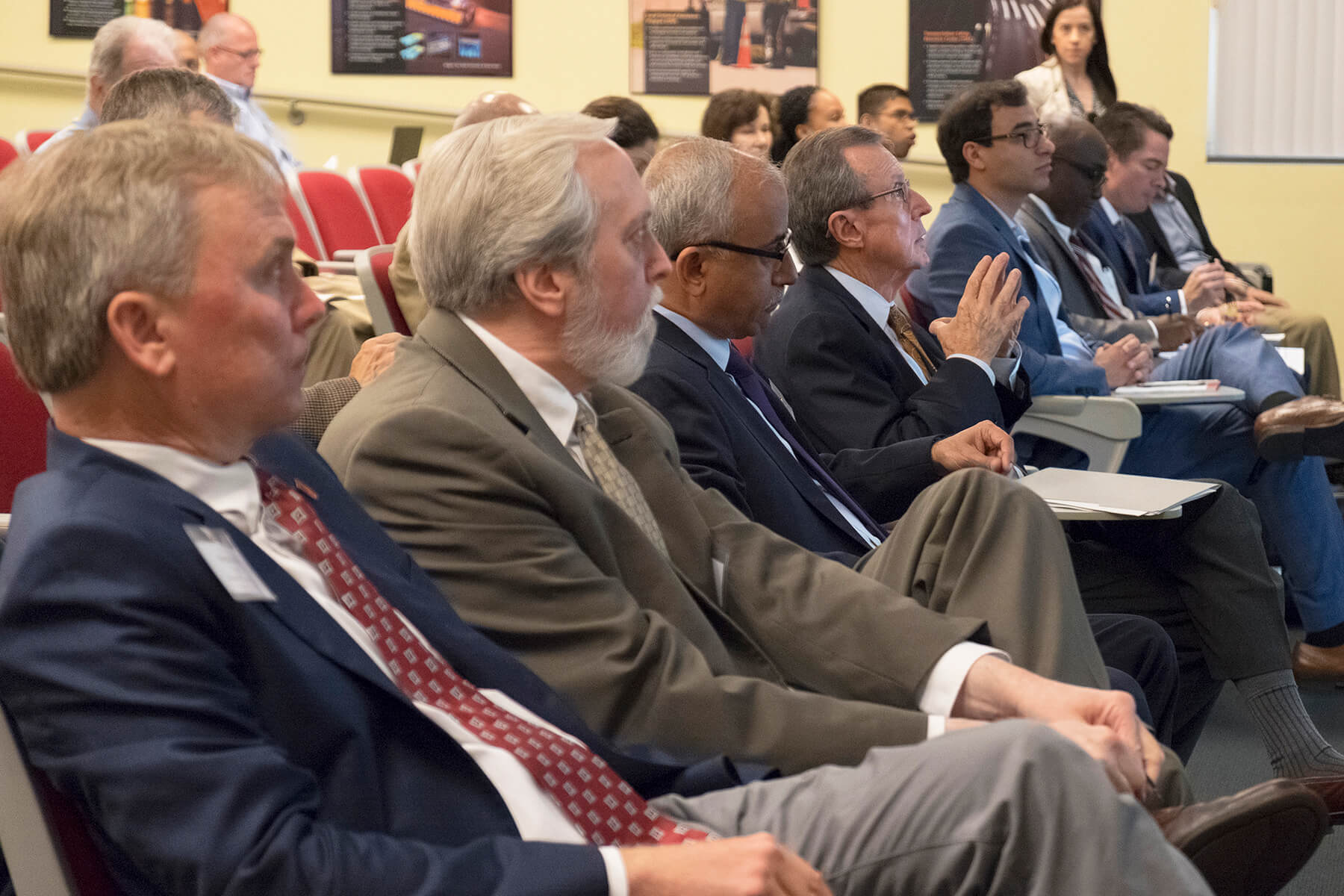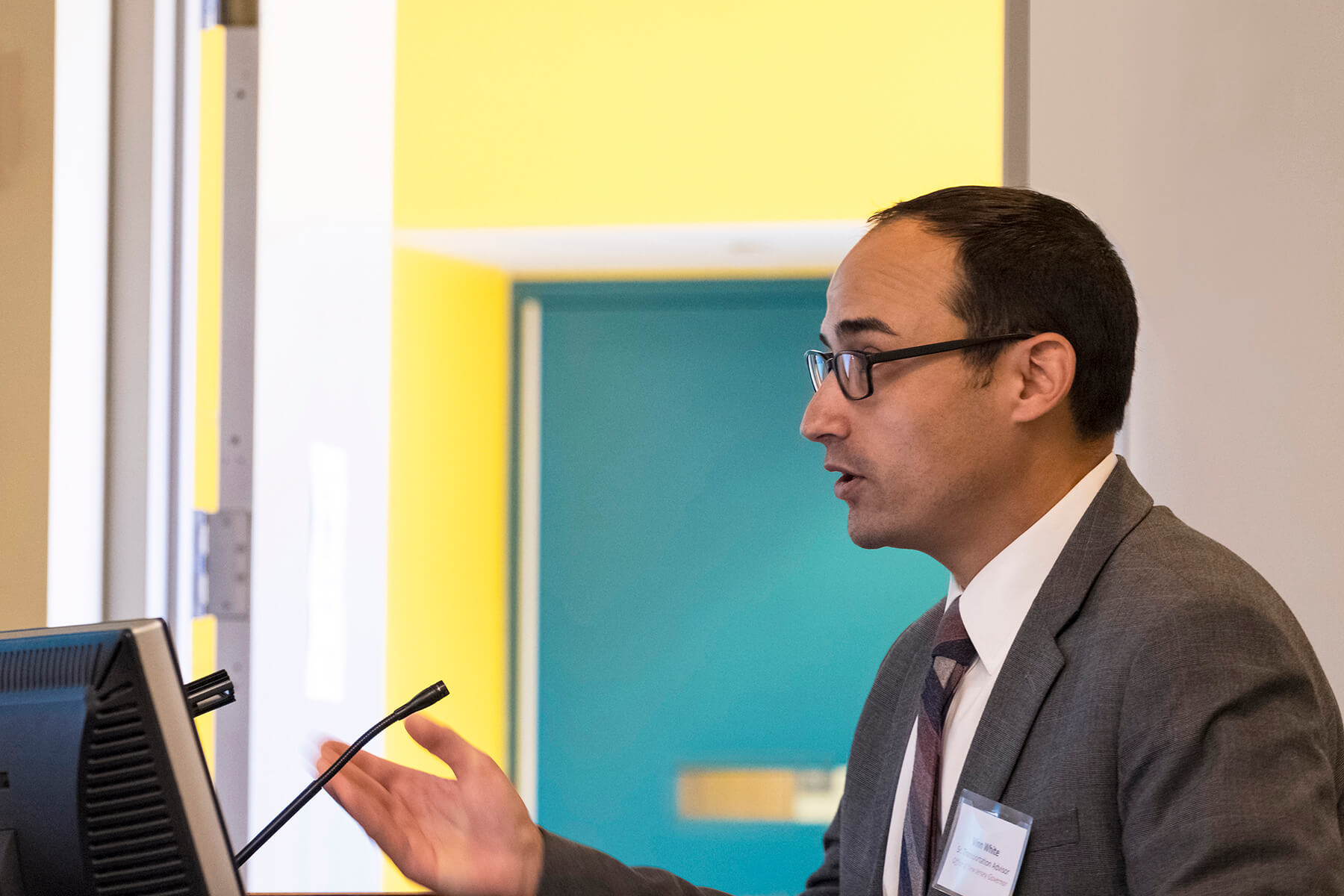With renewed focus, CAIT and its Region 2 UTC consortium partners are developing practical tools and methods that improve infrastructure health, durability, and resilience where they are needed most—close to home.
The U.S. Department of Transportation (USDOT) selected the Center for Advanced Infrastructure and Transportation (CAIT), part of the Rutgers School of Engineering, to lead a consortium of universities that will compose the USDOT Region 2 University Transportation Center (Region 2 UTC). Region 2 comprises New Jersey, New York, Puerto Rico, and the U.S. Virgin Islands.
These states and territories are an economic force; they account for nearly 10 percent of the population and jobs in the United States. The region’s diverse environments—from dense urban centers to wide-open rural areas—present a wide array of infrastructure challenges.
Members of the Region 2 UTC consortium reflect this strength and diversity: Atlantic Cape Community College, Columbia University, Cornell University, New Jersey Institute of Technology, Polytechnic University of Puerto Rico, Princeton University, Rowan University, SUNY–Farmingdale State College, and SUNY–University at Buffalo. In addition to the consortium partners, CAIT also works closely with many related organizations within and outside of Rutgers, including the Edward J. Bloustein School of Planning and Public Policy.
“Congratulations to Rutgers and CAIT for being awarded a $2.57 million grant from the USDOT’s University Transportation Center program,” said Governor Phil Murphy. “Preserving and advancing our transportation infrastructure system is going to take fresh minds and new, innovative ideas to enhance mobility for all New Jersey residents. This latest award builds upon CAIT’s strong reputation for cutting-edge breakthroughs and advancements that address New Jersey’s transportation system.”
“[CAIT] at Rutgers University is one of the nation’s finest institutions for the study of transportation issues and one with which the NJDOT regularly partners,” said Commissioner Diane Gutierrez-Scaccetti. “The USDOT’s recognition and support will help the center continue their important work addressing [the region’s] transportation needs.”
CAIT director Ali Maher said, “Halfway into our 20th year as a UTC, we continue to provide tools that fulfill critical infrastructure needs of DOTs in our region and across the country. To ensure a high return on research investment, CAIT works closely with its stakeholders to identify problems and develop implementable solutions.
“Two inventions developed at CAIT won the American Society of Civil Engineers’ prestigious Pankow Award for Innovation in 2014 and 2017. Whether our innovations take the form of robots that help assess bridge health or asset management approaches that help squeeze every penny out of tight budgets, the center strives to serve transportation agencies and the public good,” Maher said.
“CAIT and its partners also are devoted to educating future transportation leaders and keeping the current workforce up-to-date on new technologies and regulations via more than 150 courses each year,” said Janet Leli, technology transfer director at the center. “And, it prepares young people who will soon be stepping into those roles by integrating them into ongoing research.”
“There’s tremendous pressure on stewards of our transportation systems to maintain, retrofit and expand the country’s infrastructure, especially in our region, which has some of the oldest and most heavily used,” CAIT associate director Patrick Szary said. “CAIT’s work aims to ease that burden.”
For more information on USDOT’s UTC program, visit transportation.gov/utc.
July 2018




